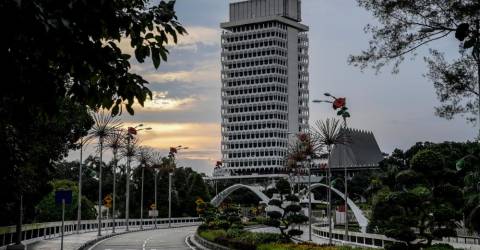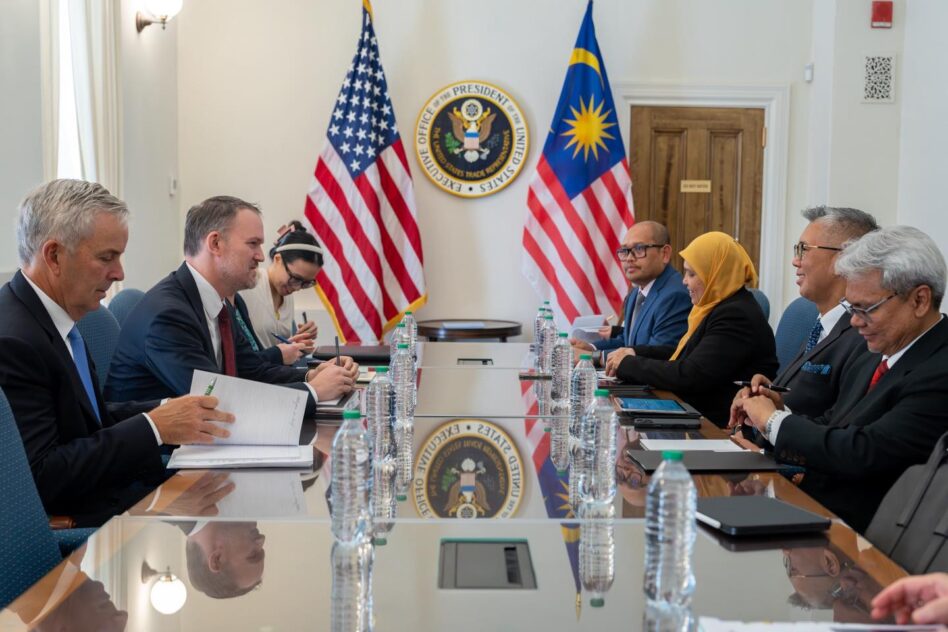MALAYSIA practices democracy which many wonder if this is the best system for us considering the spate of ‘unruly political developments’ over the past few years. It certainly needs some tweaking.
The system of democracy means a government by the people and for the people but unfortunately, the present government is not by the people, and is debatable if it is for the people.
The democratic system that we embraced is that modelled after the Westminster whereby in its land of origin (England), the politicians were known as “gentlemen of politics” whereas few would disagree that our politicians are not.
The present democracy allows the party that the people rejected to become the government of the day while the government voted in by the people has become the opposition.
Notwithstanding this, a common default with politicians from both sides of the divide is that once they are elected, there are no mechanisms to ensure that they ventilate view of the people that voted them in as they are beholden to the party leaders, the whips, and other stakeholders.
Beholden to electorate
For democracy to be vibrant and unfettered, it is paramount that the elected representatives are allowed to voice their opinion following the wishes of the people and not just their principal stakeholders, notably their political leaders.
The people power that we know ends on voting day and from then onwards, it is the politicians who make all decisions. If the decisions they make are not in the interest of the people that voted for them, the electorate would have to wait for another five years before they can elect new leaders.
The present system requires tweaking to ensure that there is an effective transfer of the power that is vested in the hands of the politicians to the people.
Decision-making should not be entirely left in the hands of the politicians, and this can be effected through a citizen assembly or a people’s parliament.
There are many models to follow, and this entails putting representative groups of people who are brought in together in informed and deliberative environments at the centre of decision making.
A random selection of people can come into groups with informed informants and a facilitator that would help guide in the decision-making process.
This can take many forms. For example, a discussion on how to enhance the income of a fisherman must bring a sample of fishermen from different parts of the country into the group as they are the principal stakeholders.
Currently, the decision-making process is carried out by politicians and civil servants who are devoid of the realities confronting the principal stakeholders for example the fisherman, and thus when decisions are finally taken, there is a significant disconnect on what is on the ground.
Absolute ignorance
The most knowledgeable about the affected issue must address the assembly and allow diverse viewpoints and proposals.
There must be earnestness in wanting to solve the problem. For example, why have the prices of fish skyrocketed but the fisherman continues to live in abject poverty?
Or what is wrong with the present system? Is there too much exploitation of the middlemen? Can the system of distribution be enhanced so that the prices of fish can be reasonable, hence the fisherman’s standard of living is raised?
It is paramount that these groups of people are fed with the right kind of information and the presence of experts that allows them to discuss and come to holistically satisfactory decisions.
Based on the findings and recommendations, they are then passed on to parliamentarians who are better able to debate the issues in parliament.
Devoid of this is akin to a blind man who touches different parts of the elephant to describe the elephant based on his limited experience, hence the description of the elephant is detached from each other.
With the voice of the people in place, debates in parliament would be raised to a higher level as the issues raised represent the views of the people and a more holistic solution can be found to problems facing the people. – May 20, 2022
Sathish Govind used to work in a think tank.
The views expressed are solely of the author and do not necessarily reflect those of Focus Malaysia.









